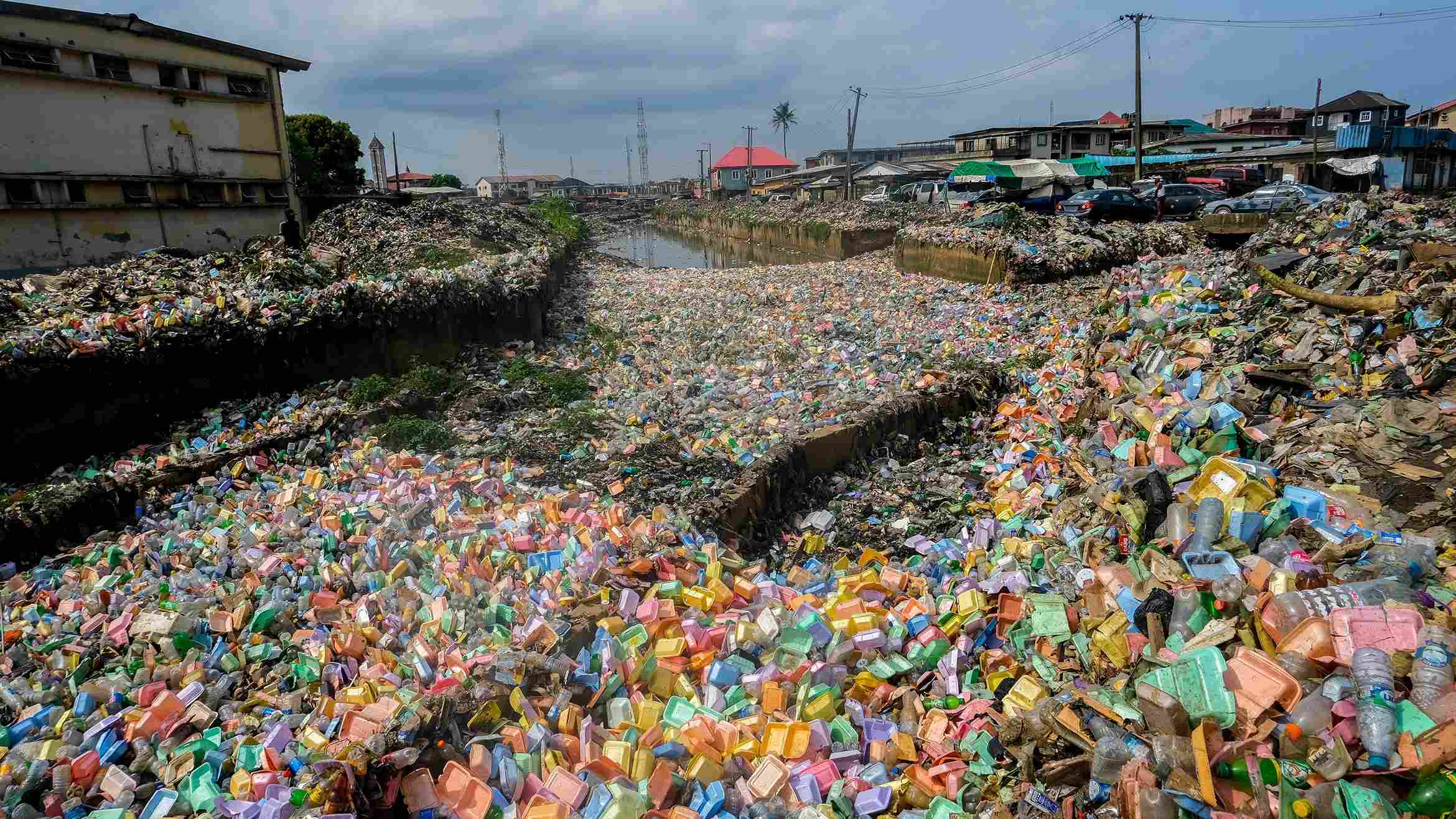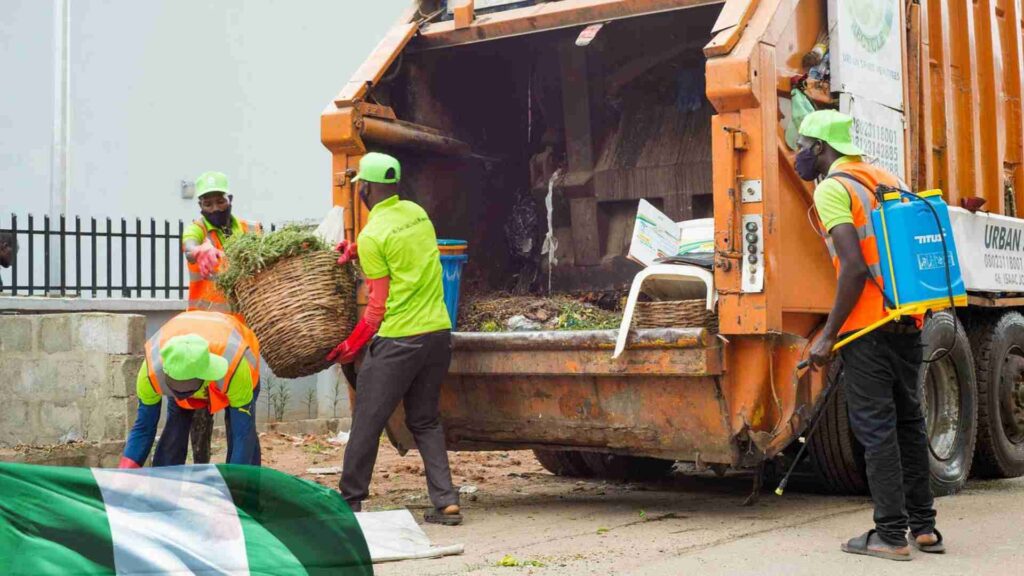Importance of Waste Collection in Nigeria
buyscrapng February 17, 2025 No Comments

Junk thrown out because it was deemed useless, faulty, or unworthy is very harmful to the environment. Organizations can effectively dispose of, reduce, reuse, and prevent waste by implementing a waste management system.
Waste Management in Nigeria
The two main techniques for managing waste are open dumping and landfilling. The release of greenhouse gases into the atmosphere is a result of landfills and waste incineration.
Waste can also be classified into types. The primary types of waste include organic waste, hazardous waste, solid waste, liquid waste, and recyclable waste.
Organic Waste
The term “organic waste” refers to any material derived from plants or animals that has the ability to break down organically. This includes leftover food, yard waste, cardboard, paper, and even certain kinds of plastic. When organic waste is composted, it breaks down into nutrients-rich soil that can be used to grow new plants. This process helps reduce the amount of waste that goes into landfills, and it also helps to improve soil quality. Utilizing organic waste is a great way to contribute to the sustainability of life on Earth. We can contribute to lowering pollution, enhancing soil quality, and building a more sustainable future by composting organic waste.
Solid Waste
Solid waste is a broad category that includes a variety of everyday items that we throw away, including clothing, household goods, food scraps, and packaging materials. Solid waste buildup in landfills can have subtle but harmful effects on the environment. The decomposition of organic waste produces methane, a potent greenhouse gas, contributing to climate change. Furthermore, the inclusion of non-biodegradable materials in solid waste, like plastics, can cause long-term environmental deterioration that affects wildlife and landscapes alike.
Liquid Waste
Liquid waste is another broad category that is frequently disregarded. It includes wastewater from medical facilities, industrial processes, and residential homes. This category of waste encompasses everything from used oils and wash water to chemical waste and industrial discharges. If not treated adequately, liquid waste can lead to the contamination of water bodies such as rivers, lakes, and oceans, harming aquatic ecosystems and jeopardizing human health through the contamination of drinking water sources. Therefore, it is essential to treat and properly dispose of liquid waste in order to protect the environment and public health.
Hazardous Waste
Hazardous waste, on the other hand, paints a graver picture. When we talk about hazardous waste, we are referring to a category of waste that, if improperly managed or disposed of, can pose significant threats to human health and the environment. This is waste that has hazardous qualities that can be harmful even in small amounts; it is not your typical household trash.
Common types of hazardous waste include:
- Chemicals: Chemicals are a major component of hazardous waste and range from industrial by-products to household agents and can contaminate water and food supplies, causing various health problems, including cancers and reproductive issues. For example, e-waste such as batteries, containing heavy metals like lead and mercury, can leach into the environment, accumulate in living organisms, and cause severe health risks, including nervous system and kidney damage.
- Medical Waste: Infectious materials and used needles are examples of medical waste that should be handled properly to prevent the spread of infectious diseases, especially to healthcare workers, waste handlers, and the general public.
Why is waste collection important?
Collecting waste helps improve cleanliness and help a beautiful city. It also improves food security in the country; for example, organic waste enhances food security mainly through their use as bio-fertilizer and soil amendment, use as animal feed, and energy. Waste collection lowers disposal costs or saves money. Similarly, recycling and/or reusing waste reduces the need to extract resources and lowers the risk of contamination, both of which are good for the environment.

What are the methods of collecting waste in Nigeria?
Recycling: This involves separating and collecting recyclable materials such as paper, plastic, glass, and metal. After that, these materials are delivered to a recycling facility, where they undergo processing to create new products.
Composting: Composting involves the decomposition of organic waste such as food scraps and yard waste into a nutrient-rich soil amendment. You can accomplish this at home with a compost pile or bin, or you can use municipal composting programs.
Landfills: Landfills are designated areas for the disposal of waste. This approach entails burying waste in a facility that has been meticulously planned and constructed to spare the environment. Because they emit greenhouse gases, landfills and waste incinerators play a part in global warming. Furthermore, our seas are polluted with plastic, which damages marine ecosystems and may worsen climate change.
Waste materials are disposed of at a landfill. Although the systematic burial of waste with daily, intermediate, and final covers only started in the 1940s, it is the most traditional and ancient method of disposing of waste. Because landfills produce and release biogas into the atmosphere, they bear some of the blame for global warming. The main components of biogas are methane gas (CH₄) and carbon dioxide (CO₂), two gases that contribute to global warming and climate change.
Waste-to-energy: With this technique, waste is converted into energy, usually by gasification or incineration. Heat or electricity can be generated with the energy produced.
Waste Management and Collection Companies in Nigeria?
Waste collection companies are tasked with collecting and segregating waste, garbage, or rubbish from the streets, bins, landfills, material recovery facilities, and so on. A waste collector such as BuyScrap Nigeria collects reusable waste for recycling and non-reusable waste for disposal. Through a system of waste collection, transportation, and disposal, the Lagos Waste Management Authority (LAWMA), a parastatal of the Lagos State government, is in charge of managing waste generated in Lagos State.
Image Credit: Adeyinka Yusuf/Anadolu Agency via Getty Images
Leave a Comment
Your email address will not be published. Required fields are marked. *